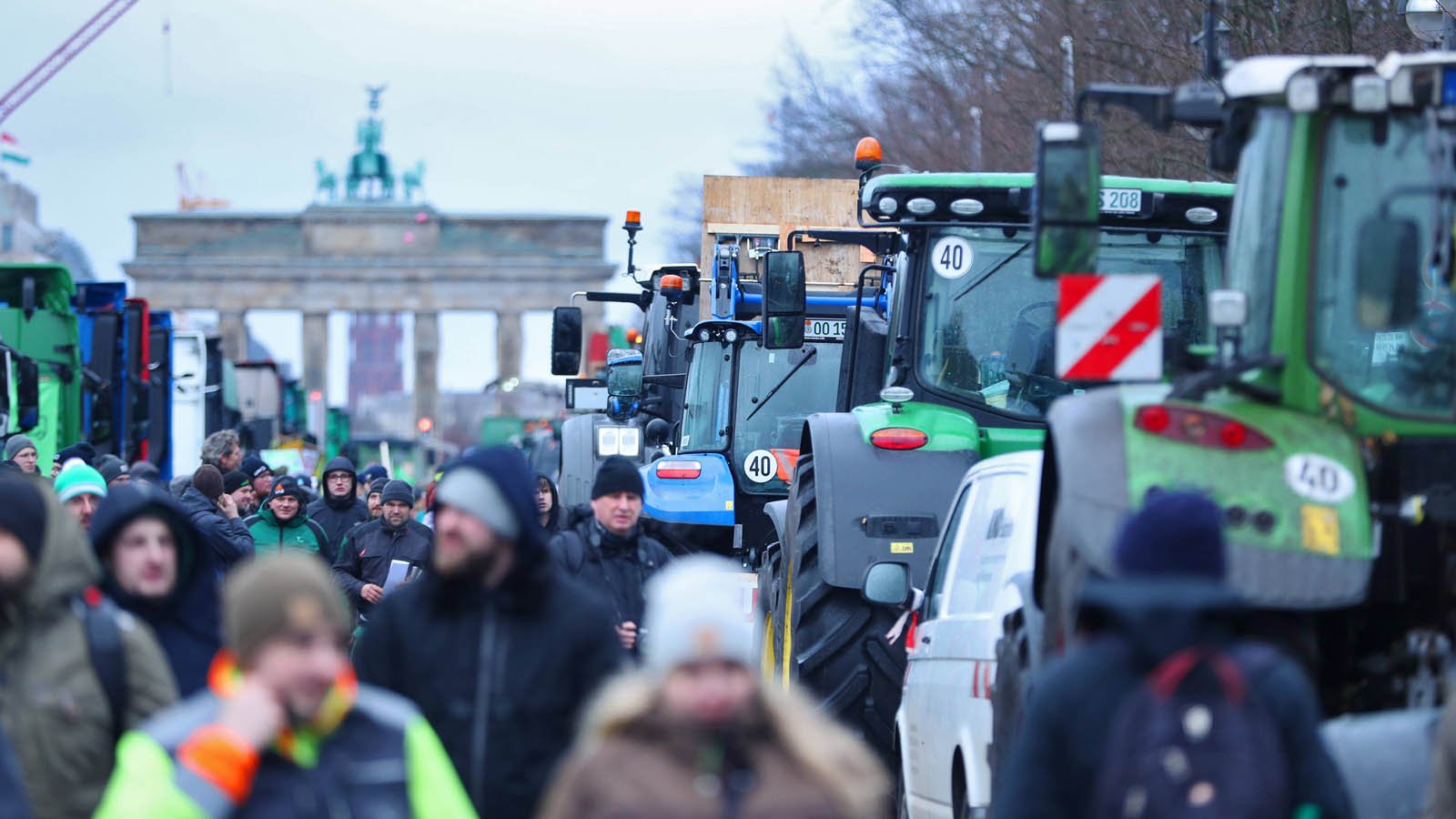What farmers need more money for
Farmers across Europe are on the warpath in the biggest and most successful farmers' protests of recent decades. In her guest article on Tagesspiegel.de, Senior Expert Louisa Prause explains what they are really about and what could come of them.
Farmers across Europe, be they in Biberach or Brussels, are on the warpath, blockading motorways and ports everywhere from Belgium and France to Poland, Lithuania and Romania. In recent weeks, we have witnessed the biggest and most successful farmers’ protests in decades. While the protest in Germany and France began with their opposition to the phasing out of subsidies on agricultural diesel, German farmers and their European colleagues meanwhile have a much wider range of demands.
They are united in calling for less bureaucracy and in opposing cheap food imports and, time and again, in resisting environmental and climate protection regulations. And their protests are having the desired effect: politicians are making far-reaching concessions to farmers, not only in Germany. French Prime Minister Gabriel Attal backtracked on an agricultural diesel tax increase, pledged 150 million euros in help for cattle farmers and promised to revise a law on the use of pesticides. In Belgium, Walloon Agriculture Minister Willy Borsus undertook to reduce red tape.
And last but not least, the EU Commission has made sweeping concessions to farmers: at least four percent of arable land is supposed to be set aside in order for farmers to qualify for EU agricultural subsidies. Such fallow land plays an important role as a habitat for insects and in preserving biodiversity. Farmers can now be exempted from this rule. Shortly afterwards, the EU Commission also withdrew its proposed tightening of the rules on pesticides. There is probably no other group in society that has managed so successfully to get politicians at national and European level to yield to their demands in recent years. So what makes the farmers so successful?
Unlike many other groups, farmers have an important weapon in their arsenal when it comes to staging spectacular and confrontational protests – namely their tractors. They are also highly effective: by blockading the border crossing between the Netherlands and Belgium, German motorways, the port in Antwerp and the Rungis wholesale market in France, farmers have jeopardized the complex supply chains in the agricultural food sector. Empty shelves are not only bad for business for major European supermarket chains; they are also anything but good news for the politicians in power in the election year 2024.
Right-wing populists in Europe have long since discovered the potential offered by the topics of agriculture and food. Food is political, and right-wing parties have spotlighted this issue repeatedly in order to polarize society. That’s also why right-wing populist groups could be seen taking part in the farmers’ protests in many European countries in a bid to exploit them for their own ends. In France it was the Rassemblement National, while in the Netherlands the conspiracy theorist Eva Vlaardingerbroek demonstrated her solidarity with the protesters. And while in Germany the German Farmers’ Association and the Arbeitsgemeinschaft bäuerliche Landwirtschaft (Small Farmers’ Association, AbL) have distanced themselves from the AfD’s appropriation attempts, this has not always been clearly the case in France, for example.
The fear that the farmers’ protests could make right-wing forces even more successful than polls indicate they already are explains why the EU Commission and governments caved in so quickly to the demands of the farmers. Politicians cannot simply adopt measures that pacify farmers and offer them short-term relief, however.
"Whether we like it or not, climate change means that we need a more sustainable and more resilient form of agriculture – one that will also enable farmers to earn enough money in the future. And politicians have so far done precious little to make this happen."
The EU should stop its direct payments to agricultural businesses. They benefit landowners and large-scale operations in particular, not small family-owned farms. Yet it is the latter that are especially important for creating diverse and climate-friendly agricultural landscapes. Instead, subsidies should be tied to the services farmers provide to benefit society, such as protecting insects and birds or managing water sustainably. Subsidies should go to farmers who employ sustainable and innovative methods. Farmers in France have been experimenting with agro-ecological cultivation for decades: they manage without chemicals and are now pioneering the use of robots for pesticide-free weed control.
It goes without saying that farmers who are unable to afford the costs of switching to sustainable agriculture deserve financial support – to pay for species-appropriate pens for livestock or new machinery, for example. However, they also deserve more recognition for the public goods they provide, such as the preservation of natural resources or the guarantee of animal welfare, and of course for the food they produce. This support should come from the political centre, not only from the far right.

